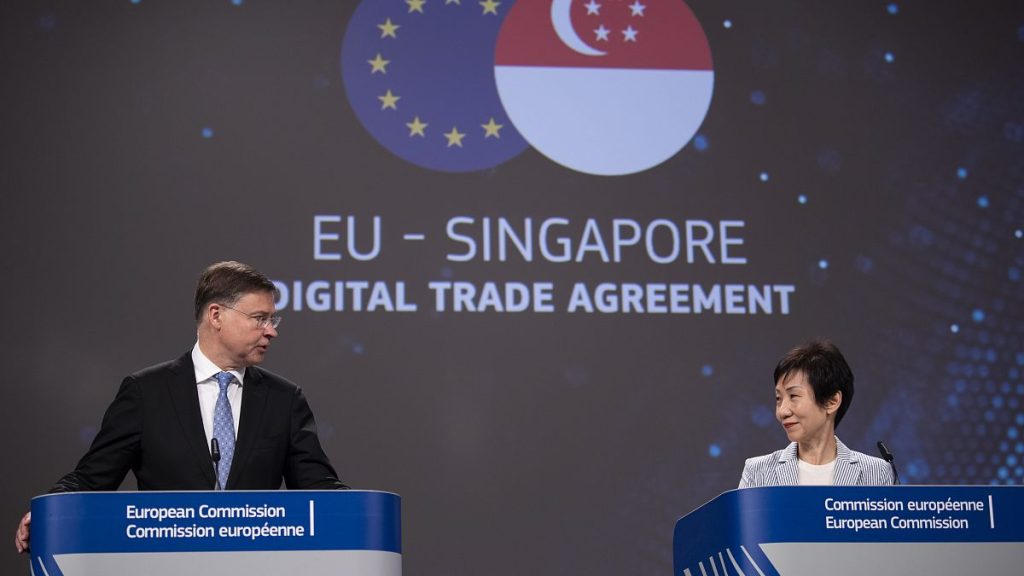The EU and Singapore concluded negotiations on a new Digital Trade Agreement aimed at increasing online trade, helping SMEs with digital transformation, and facilitating data flows. The deal, announced following talks in Brussels, builds upon the EU-Singapore Free Trade Agreement that came into effect in 2019. Both parties have agreed to measures to enhance cooperation in digital trade, reducing burdens for SMEs, enabling interoperable digital trade systems, and establishing rules on data flow. Singapore’s Trade Minister Grace Fu highlighted the importance of setting high standards for personal data protection and prohibiting data localization requirements in cross-border digital trade transactions.
This agreement is part of the EU’s strategy to form partnerships in the East and Southeast Asian region, particularly in the face of commercial tensions with China. By working together as digitally progressive and like-minded trading partners, the EU and Singapore hope to set high-standard digital trade rules between their regions and raise the ambition of global digital standards. Singapore, as the EU’s second-largest partner in digital trade, stands to benefit significantly from this agreement. In 2022, over half of the total trade in services between the EU and Singapore was digitally delivered, amounting to €43 billion.
The agreement will only come into effect once it has been approved by Singapore and by the Member States through a qualified majority system in the Council and a vote in the European Parliament. The agreement is one of many being negotiated by the EU in the region, including a similar agreement on digital trade with South Korea and a Data Flow Agreement with Japan that recently came into force. The EU is also working to ratify the previously concluded Tree Trade Agreement with Singapore, which is still pending approval by nine member states.
Overall, the Digital Trade Agreement between the EU and Singapore aims to boost online trade, improve digital transformation for SMEs, and facilitate data flows between the two regions. By setting high standards for personal data protection and prohibiting data localization requirements, the agreement provides certainty and clarity for citizens and businesses engaging in cross-border digital trade transactions. As digitally progressive and like-minded trading partners, the EU and Singapore aim to play a leading role in setting high-standard digital trade rules in their regions and increasing the ambition of global digital standards.
In the midst of commercial tensions with China, the EU is strategically forming partnerships in the East and Southeast Asian region. This Digital Trade Agreement with Singapore is part of that strategy and complements the existing EU-Singapore Free Trade Agreement. Singapore is set to benefit significantly from the agreement, as the EU is its second-largest partner in digital trade. By working together, the EU and Singapore hope to enhance cooperation in digital trade, reduce burdens for SMEs, enable interoperable digital trade systems, and establish rules on data flow. The agreement will only come into effect once it has been approved by both Singapore and the Member States through a qualified majority system in the Council and a vote in the European Parliament.













